

KENNESAW, Ga. | Sep 13, 2021
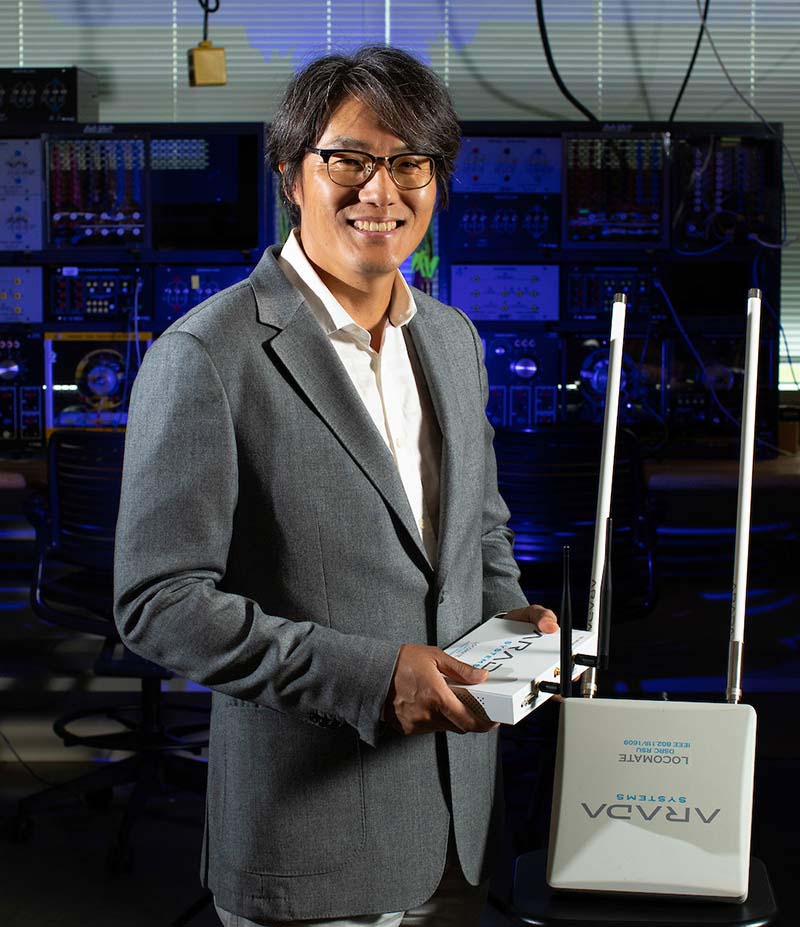
Yusun Chang is no stranger to success.
First arriving at Kennesaw State University in 2009 as an adjunct professor, he has garnered countless accolades for his research and teaching capabilities, collecting nearly $500,000 in external research funding and earning the institution’s 2021 Distinguished Faculty Award and 2020 Outstanding Research and Creative Activity Award.
Despite the recognition, he contends that no award can replace the satisfaction he receives in seeing his students graduate from his laboratory and find fruitful research careers of their own.
“Of course, I want to be successful with my students as we work to publish papers and capitalize on new research opportunities,” said Chang, who now serves as interim chair in Kennesaw State’s Department of Robotics and Mechatronics Engineering. “At the same time, they should have their own bright careers, and I want them to be successful long after they leave my lab.”
As director of the Vehicular Ad-hoc Networking (VANET) research laboratory, a joint operation between KSU and the Georgia Institute of Technology founded in 2010, Chang has also played a role in shaping the research culture among engineering students at both institutions. The lab funded by the Georgia Department of Transportation (GDOT) exists to explore the latest in connected vehicle technology and intelligent transportation systems, and it regularly employs undergraduate KSU students to work alongside Georgia Tech Ph.D. students as they develop cutting-edge solutions for Georgia’s most pressing traffic-related problems.
The lab builds on Chang’s own Ph.D. dissertation, in which he researched how wireless technology, such as Wi-Fi, can be used in automobiles allowing them to communicate with one another. By creating so-called “connected vehicles,” Chang said there are huge implications for the future of roadway safety. Systems like the ones being explored in the VANET research lab allow for emergency messages to be transmitted without the use of a third-party network, and can alert drivers to roadway hazards up ahead.
Another early goal of the joint lab was to provide KSU undergraduate students an avenue to become involved in highly impactful research, Chang said.
“This was part of a larger effort to get my undergraduate students involved in the lab and refine their research capabilities for other uses down the road,” he said. “It has really created a nice cycle where the Ph.D. students mentor undergraduate students at KSU, who, in return, get to conduct research alongside folks at Georgia Tech. Some of my students have gone on to enroll in Georgia Tech graduate programs and start the cycle all over again by mentoring a new crop of students at KSU.”
One such student was Razvan Voicu, who graduated from KSU, then Southern Polytechnic State University, in 2013. Now pursuing a Ph.D. in computer engineering at Georgia Tech, Voicu credits Chang with helping him discover a passion for research through the VANET research lab.
“Without Dr. Chang's mentorship and advice, I would never have continued to my graduate studies,” said Voicu, who also teaches in KSU’s Southern Polytechnic College of Engineering and Engineering Technology. “He has demonstrated unending support, even answering calls in the middle of the night to help resolve issues with publications. It’s that kind of support that has allowed countless undergraduate and Ph.D. students to thrive, and is exactly why I hope to become the same kind of role model he is one day.”
Billy Kihei, assistant professor of computer engineering at Kennesaw State, echoed Voicu’s sentiments. One of Chang’s former Ph.D. students in the VANET lab, Kihei said he was given the freedom to chase new ideas en route to honing his expertise in signal processing.
“He has supported me through every idea I've had and fully trusted me as a Ph.D. student,” Kihei said. “Whereas some Ph.D. students are told what to research, Dr. Chang allowed me the creative freedom to pursue investigations that I was interested in.”
With KSU’s rise to Carnegie-designated R2 research status and the recent addition of a Ph.D. program in interdisciplinary engineering, Chang said he looks forward to seeing what new possibilities lie in the VANET research lab.
“Everything considered, KSU has high potential to have a really successful engineering program, and I’m excited to see what new things we can do with our own Ph.D.
– Travis Highfield
Photos by David Caselli
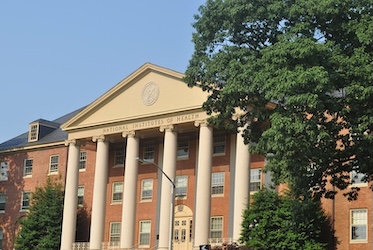
Alumnus builds career in biomedical research at the National Institutes of Health
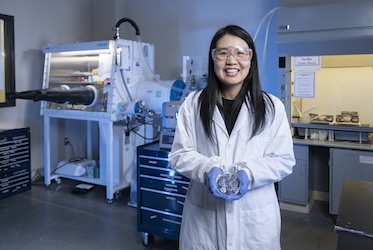
Kennesaw State researcher develops safer, faster solid-state battery design
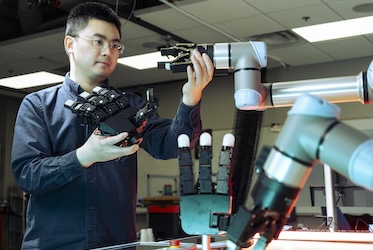
Researcher seeks to help robots have a more human touch
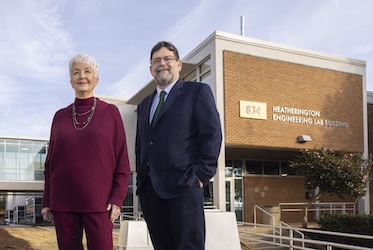
Lawrence Whitman installed as Dale and Ann Heatherington Endowed Chair of Engineering and Engineering Technology
A leader in innovative teaching and learning, Kennesaw State University offers undergraduate, graduate, and doctoral degrees to its more than 51,000 students. Kennesaw State is a member of the University System of Georgia with 11 academic colleges. The university's vibrant campus culture, diverse population, strong global ties, and entrepreneurial spirit draw students from throughout the country and the world. Kennesaw State is a Carnegie-designated doctoral research institution (R2), placing it among an elite group of only 8 percent of U.S. colleges and universities with an R1 or R2 status. For more information, visit kennesaw.edu.